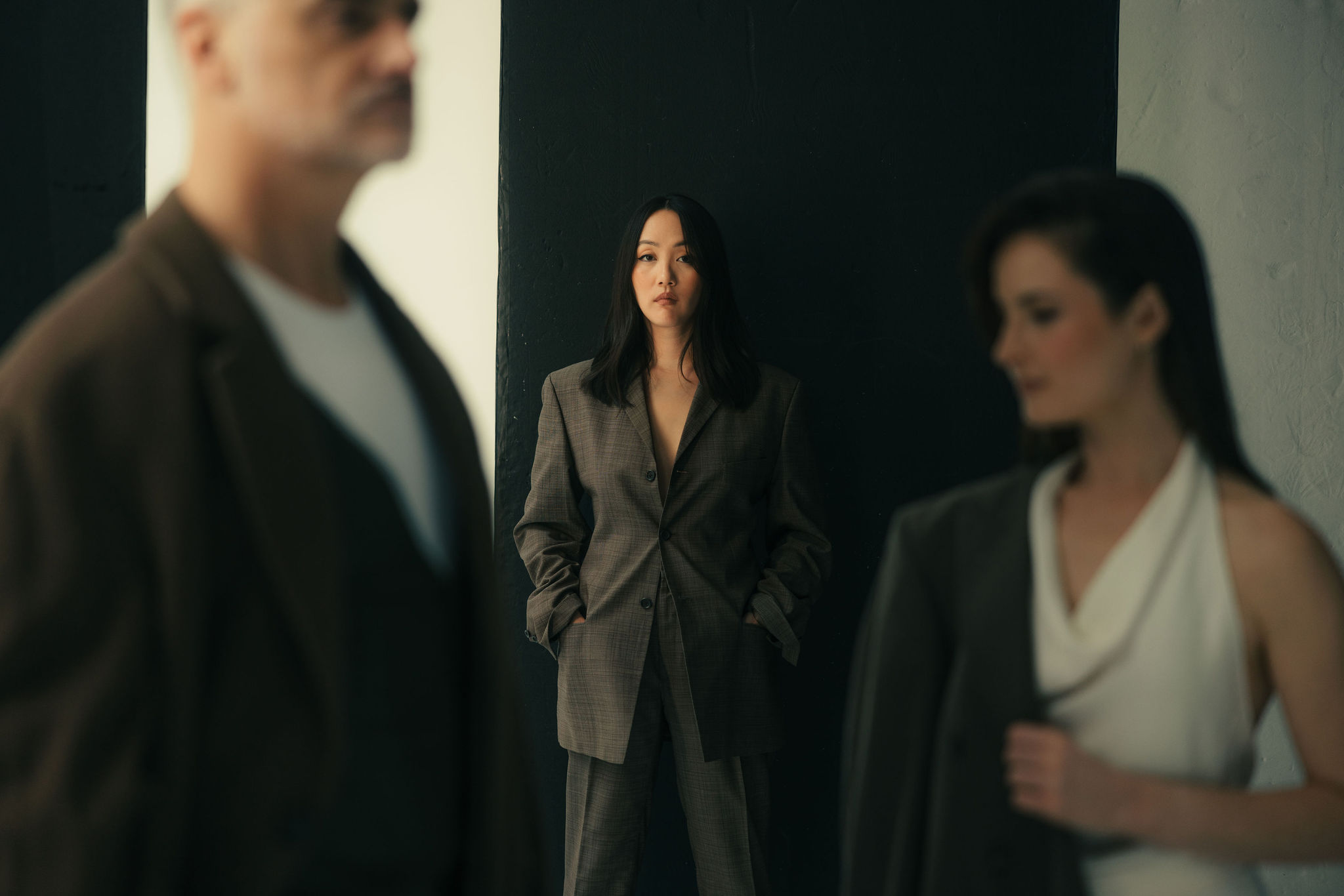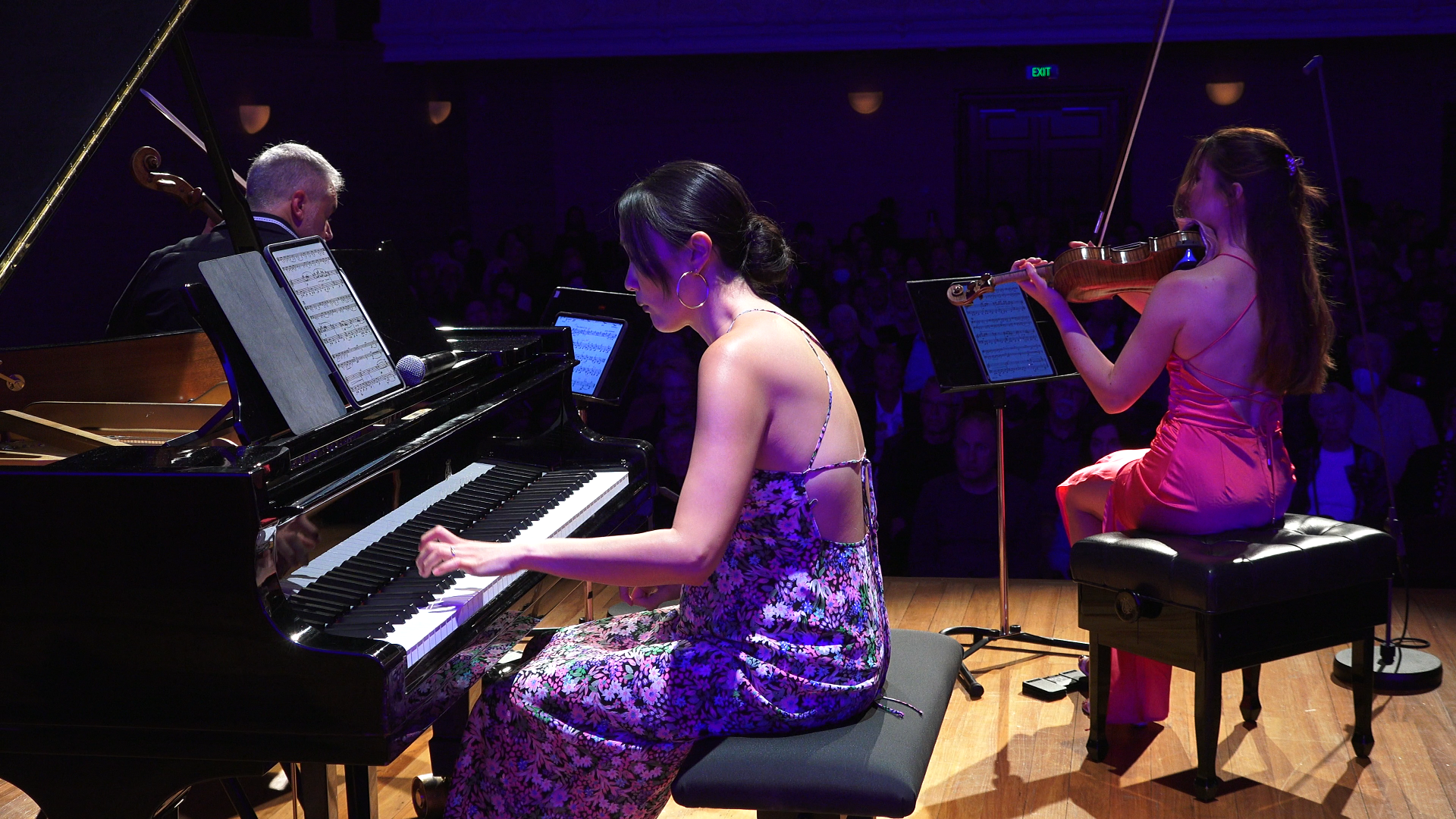Messiaen wrote [Quartet for the end of Time] to bring “eternal light and unalterable peace” to all people. Seventy-five years later, a 27-year-old British clarinettist and NZTrio are fulfilling Messiaen’s promise, on the other side of the world, with 10 consecutive performances, from Auckland to Invercargill, of this quartet. . .The music depicts angels, jubilant bird song, rainbows, furious apocalyptic trumpets, tenderness and ecstasy. I loved the infinitely slow cello solo, in praise of the eternity of Jesus, and the clarinet solo, the abyss of the birds, full of sustained beauty. The audience were overwhelmed, as I was, right to the last expansive violin melody floating upward to heaven. . .This was a superb concert, unforgettable for the commitment and energy of the musicians and their technical perfection.
Margot Hannigan, Nelson Mail – 2 August 2016
It is 75 years ago that French composer Olivier Messiaen wrote his Quartet for the End of Time. The circumstances of its composition were extraordinary. It was written and performed in a German concentration camp in the depths of winter, 1941.
Messiaen wrote it to bring “eternal light and unalterable peace” to all people. Seventy-five years later, a 27-year-old British clarinettist and the NZTrio are fulfilling Messiaen’s promise, on the other side of the world, with 10 consecutive performances, from Auckland to Invercargill, of this quartet. Bliss believes it is “the greatest piece of chamber music ever written”.
The music depicts angels, jubilant bird song, rainbows, furious apocalyptic trumpets, tenderness and ecstasy. I loved the infinitely slow cello solo, in praise of the eternity of Jesus, and the clarinet solo, the abyss of the birds, full of sustained beauty.
The audience were overwhelmed, as I was, right to the last expansive violin melody floating upward to heaven.
No less ethereal was Ross Harris’s commissioned piece, “There May Be Light”. He wrote this as a companion piece to the Messiaen. But his music was in soft, hushed gestures, exploring and balancing micro-tones, deliberately discordant, as if unable to stay ‘in tune”, capturing the subdued, speechless silence of captivity and uncertainty in a prisoner-of-war camp. A challenging and engrossing composition, meditating on the fragility of life.
The first two items were contrasting twentieth-century French pieces. Debussy’s Premiere Rhapsodie, written in 1909 for solo clarinet, was performed with unfaltering musicality by Julian Bliss. He has unbelievable dynamic range and soulful tone.
Darius Milhaud’s Suite, written in 1936 as incidental music for Jean Anouilh’s play about an amnesiac war veteran, was jaunty and playful, influenced by Latin folk music and jazz. It was light-hearted, but further illustrated the theme of human adaptability and the loss of sanity in the face of war.
This was a superb concert, unforgettable for the commitment and energy of the musicians and their technical perfection.
Margot Hannigan, Nelson Mail – 2 August 2016

